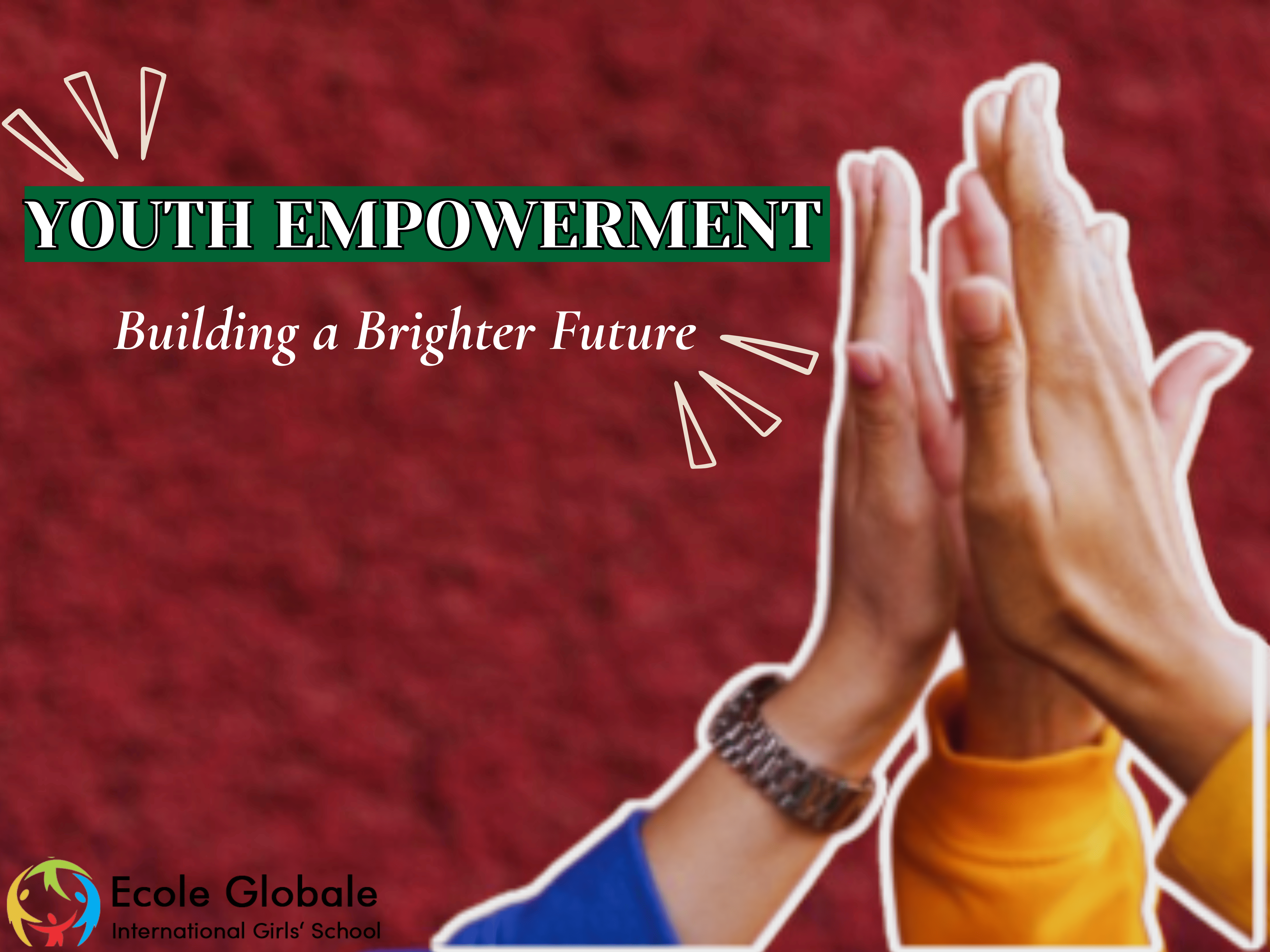Youth are the lifeblood of society, bringing fresh perspectives, vibrant energy, and a determination to change the world for the better. Yet, despite their potential, young people often face obstacles that prevent them from fully thriving. Empowering youth is not just a moral obligation but a strategic necessity for the sustainable progress and prosperity of any nation.
It offers a comprehensive framework for empowering youth responsibility that includes access to education, technology, economic opportunities, social inclusion, political participation, environmental responsibility, and entrepreneurship. By addressing these areas, we can unlock the vast potential of young people, enabling them to become leaders in creating a fairer, more sustainable world.
The Importance of Youth Empowerment

Youth, generally defined as individuals aged 15 to 24, make up a substantial portion of the global population—over 1.2 billion people, or around 16% of the world’s population. This demographic holds incredible promise, as young people are often at the forefront of economic development, social progress, and innovation. Empowering youth is crucial for the long-term success of any society.
Empowering young people provides numerous benefits:
- Fosters Personal Growth and Decision-Making: Empowered youth develop critical thinking skills, confidence, and resilience, enabling them to make informed decisions about their lives and contribute positively to their communities.
- Drives Economic Growth: By harnessing the creativity and entrepreneurial spirit of youth, societies can stimulate economic growth through the creation of new businesses, innovative products, and an expanded workforce.
- Enhances Civic Engagement: Empowered youth are more likely to engage in political processes, advocate for change, and contribute to building stronger, more inclusive communities.
- Addresses Global Challenges: From tackling climate change to fighting inequality, empowered youth can be powerful agents of change when given the tools and opportunities to make a difference.
Key Dimensions of Youth Empowerment

Youth empowerment is a complex and multifaceted concept that touches every aspect of a young person’s life. To effectively empower youth, it’s essential to address several critical dimensions:
1. Educational Attainment
Access to quality education is the foundation of youth empowerment. Education equips young people with the knowledge, skills, and critical thinking abilities needed to succeed in the 21st-century job market. Beyond academics, education fosters emotional intelligence, problem-solving, and social skills that are vital for personal and professional growth.
2. Access to Technology
In today’s digital age, technology plays a crucial role in youth empowerment. Ensuring young people have access to information and communication technologies (ICTs) can open doors to education, entrepreneurship, and civic participation. Bridging the digital divide and enhancing digital literacy are essential steps in leveling the playing field for all youth.
3. Poverty Alleviation
Economic hardship can severely limit a young person’s opportunities. Addressing poverty through improved access to healthcare, nutritious food, quality education, and safe housing is essential for empowering underprivileged youth. Reducing socioeconomic disparities allows young people to focus on their personal development and future goals.
4. Social Inclusion
Promoting social inclusion is vital to ensuring that all young people, regardless of background, have the opportunity to thrive. This includes addressing the needs of marginalized groups, such as ethnic minorities, LGBTQ+ youth, and those with disabilities. Empowering marginalized youth helps build a more just and inclusive society.
5. Political Engagement
Youth must have a voice in the political process to advocate for their rights and influence policies that impact their lives. Political engagement empowers young people to participate in decision-making and push for societal changes that reflect their needs and aspirations.
6. Environmental Stewardship
With the growing urgency of environmental issues, youth empowerment must include equipping young people with the skills and knowledge to tackle challenges like climate change, resource depletion, and pollution. Educated and motivated youth can drive sustainability initiatives and lead the way toward a greener future.
7. Entrepreneurial Development
Empowering young entrepreneurs is key to economic growth and innovation. By providing access to training, resources, and mentorship, societies can nurture the entrepreneurial spirit of youth, enabling them to start businesses, create jobs, and contribute to the economy.
Challenges Facing Youth Empowerment

Despite their potential, young people often face numerous barriers that prevent them from achieving their full capabilities. Some of the most pressing challenges include:
1. Educational Inequities
Many young people, especially those from marginalized communities, do not have access to quality education. These disparities can limit their career prospects, perpetuate cycles of poverty, and widen the gap between different social groups.
2. The Digital Divide
The uneven distribution of digital technology and lack of digital literacy can further marginalize youth, particularly in rural and underserved areas. Access to the internet and technological resources is essential for education, employment, and civic engagement in today’s world.
3. Economic Hardships
Youth unemployment, underemployment, and economic instability are significant challenges for many young people. Without access to decent work and economic opportunities, youth may struggle to achieve financial independence and stability.
4. Social Exclusion and Discrimination
Marginalized youth, such as those from minority backgrounds, LGBTQ+ communities, or with disabilities, often face discrimination and exclusion. These barriers limit their access to education, employment, and social participation, hindering their overall development.
5. Political Disengagement
Young people often feel disconnected from the political process due to perceived corruption, lack of representation, and limited opportunities for meaningful participation. This disengagement can lead to apathy and a lack of trust in political institutions.
6. Environmental Vulnerability
Young people will inherit the environmental challenges of today, including climate change and resource scarcity. These issues disproportionately affect youth, particularly in developing regions, where the impacts of environmental degradation are most severe.
7. Entrepreneurial Obstacles
Aspiring young entrepreneurs often lack access to the financial resources, networks, and mentorship needed to start and sustain businesses. Without supportive ecosystems, many innovative ideas never come to fruition.
Strategies for Effective Youth Empowerment

Addressing these challenges requires a coordinated, multidimensional approach that involves key stakeholders, including governments, civil society, the private sector, and young people themselves. The following strategies can help foster effective youth empowerment:
1. Invest in Quality Education
Governments and organizations should invest in inclusive, accessible, and high-quality education systems that equip young people with the skills needed for the future. Expanding access to STEM education, vocational training, and lifelong learning opportunities can help bridge educational gaps.
2. Bridge the Digital Divide
To empower youth in the digital age, it is crucial to implement policies that ensure universal access to digital technologies and promote digital literacy. Providing affordable internet access and digital skills training can help level the playing field for all young people.
3. Promote Economic Empowerment
Creating pathways to decent employment and entrepreneurship for youth is vital. This includes providing access to financial resources, training, and mentorship, as well as addressing broader socioeconomic issues such as healthcare, nutrition, and housing.
4. Foster Social Inclusion
Policies and programs that promote the representation and inclusion of marginalized youth are essential for building a fairer society. Combating discrimination, supporting youth-led initiatives, and enhancing access to social services can help marginalized youth thrive.
5. Encourage Political Participation
Creating platforms for youth to engage in political processes and advocate for their rights is essential. Governments can support youth councils, civic education programs, and youth-led advocacy efforts to strengthen political engagement.
6. Empower Youth for Environmental Action
Young people must be equipped with the knowledge and skills to address environmental challenges. Education on sustainability, climate action, and resource management can empower youth to become leaders in environmental stewardship.
7. Support Youth Entrepreneurship
Developing robust support systems for young entrepreneurs—including access to financing, mentorship, and business development resources—can unlock their potential as innovators and job creators.
Conclusion
Youth empowerment is not just about providing opportunities—it’s about creating an environment where young people can thrive, contribute, and lead. By addressing the key dimensions of youth empowerment and implementing effective strategies, we can unlock the immense potential of young people, turning them into the architects of a brighter, more sustainable future.
The time to invest in youth is now. By embracing their creativity, resilience, and passion, we can empower the next generation to build a world that is equitable, inclusive, and full of opportunity for all. Let’s harness the power of youth and work together to create a better tomorrow.









